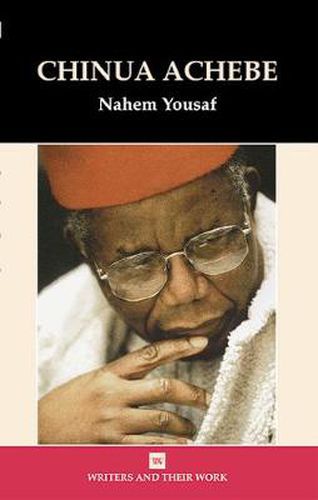Readings Newsletter
Become a Readings Member to make your shopping experience even easier.
Sign in or sign up for free!
You’re not far away from qualifying for FREE standard shipping within Australia
You’ve qualified for FREE standard shipping within Australia
The cart is loading…






The publication of Things Fall Apart in 1958 brought world-wide attention to the Nigerian writer Chinua Achebe and established him as the pre-eminent African writer working in English. Achebe has been instrumental in bringing African literature to world attention through his fiction, his essays and his editorship. Over a long career Achebe has won many accolades and awards and his Anthills of the Savannah was shortlisted for the Booker Prize in 1987. This book examines Chinua Achebe’s novels but it also draws on his criticism, and locates his writing in terms of current developments in postcolonial theory. The unifying focus is Achebe’s preoccupation with language, politics and power in pre- and post-independence Nigeria and his examination of the relationship between cultural identity and literary form. Exploring the opposition between the colonial and the postcolonial, the individual and the community, and tradition and modernity, Achebe makes a major contribution to our understanding of African life and literature.
$9.00 standard shipping within Australia
FREE standard shipping within Australia for orders over $100.00
Express & International shipping calculated at checkout
The publication of Things Fall Apart in 1958 brought world-wide attention to the Nigerian writer Chinua Achebe and established him as the pre-eminent African writer working in English. Achebe has been instrumental in bringing African literature to world attention through his fiction, his essays and his editorship. Over a long career Achebe has won many accolades and awards and his Anthills of the Savannah was shortlisted for the Booker Prize in 1987. This book examines Chinua Achebe’s novels but it also draws on his criticism, and locates his writing in terms of current developments in postcolonial theory. The unifying focus is Achebe’s preoccupation with language, politics and power in pre- and post-independence Nigeria and his examination of the relationship between cultural identity and literary form. Exploring the opposition between the colonial and the postcolonial, the individual and the community, and tradition and modernity, Achebe makes a major contribution to our understanding of African life and literature.